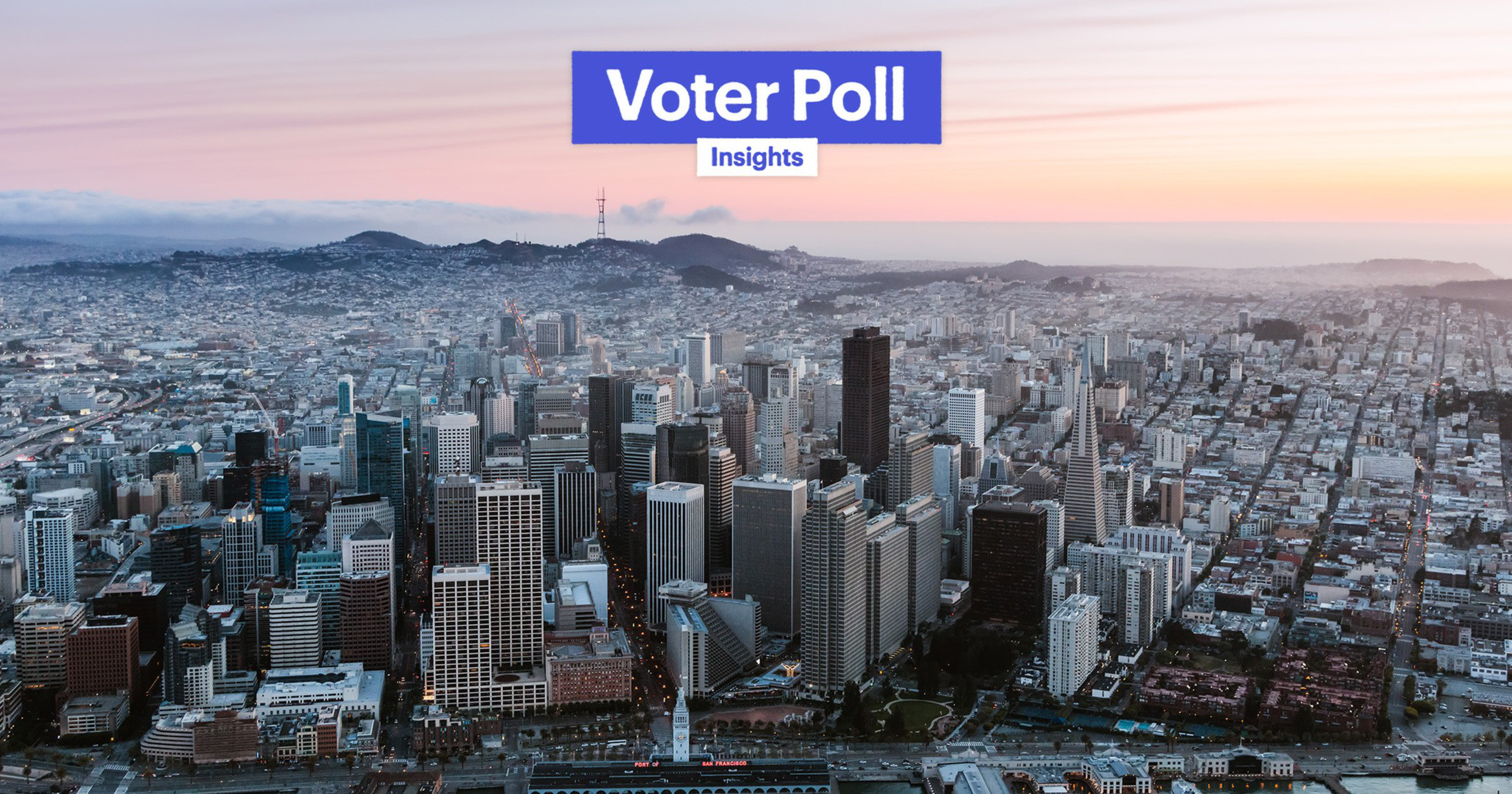San Francisco voters are not in a happy place.
Our first San Francisco Standard Voter Poll shows broad discontent with homelessness and crime, ongoing frustration with the high cost of living and little confidence in city leaders. Voters are leaning away from “progressive” politics and backing law-and-order approaches to public safety, potentially signaling a broader political realignment.
Hints of such a shift appear throughout the poll results. One example: About two-thirds of respondents favored forced treatment for hard-core drug abusers, a controversial policy that recently won backing from Gov. Gavin Newsom but is anathema to SF progressives. By contrast, only one-third supported safe consumption sites for drug users, a centerpiece of the “harm reduction” model that is favored by many in the drug-treatment field but is viewed with suspicion by moderates.
The three members of the SF school board who were recalled in April were perhaps the first victims of the changing attitudes, and District Attorney Chesa Boudin may be next: more than half of voters support his recall. The Board of Supervisors could come after that, with some 67% of respondents disapproving of its performance. Only 41% of voters said they expected to stay in San Francisco for the long term, not necessarily a high number for a city that has always been somewhat transient but a concern for city leaders nonetheless.
There are glimmers of optimism in the survey, too: Young voters are the most positive about San Francisco, and the city gets high marks for cultural diversity, green spaces and economic opportunity. Most think the city will come back from the pandemic sooner rather than later. The not-in-my-backyard attitude that has fed the housing and affordability crisis may be waning, with 86% of voters supporting some type of new housing in their neighborhoods.
If it’s any comfort to SF cheerleaders, the results in many ways reflect national themes, including post-Covid insecurity and a backlash against the social justice movement and its calls to “defund the police.” The San Francisco Police Department, despite a long history of problems and an apparent inability to suppress the street crime that has upset many residents, received the highest approval rating of any city department in the survey.
But the poll also underscores just how seriously homelessness, the fentanyl crisis and a general sense of disorder on the streets—whether real or perceived—have darkened the mood of residents and undermined confidence in the city’s future. A crucial challenge in the coming months and years may be keeping businesses from leaving: SF’s status as a hub for talent and innovation is an asset it can ill-afford to lose.
Residents do not seem inclined to turn their backs on politics, though: three-quarters of poll respondents said they follow local issues closely. That’s both a threat and an opportunity for Mayor London Breed, whose 49% approval rating in the survey is relatively strong. If she can make a dent in the problems she’ll likely be rewarded—but could also be left holding the bag on public safety if Boudin is recalled.
